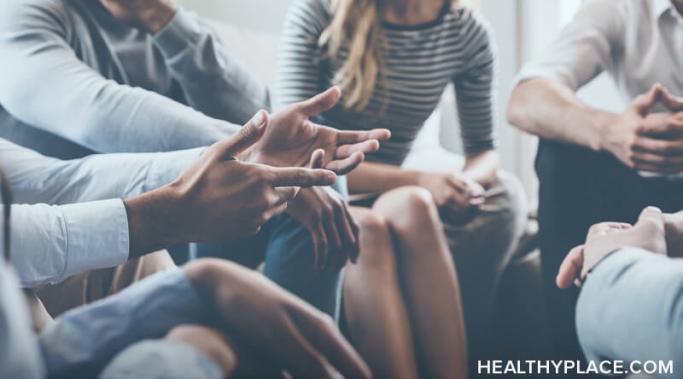What does Pride Month mean to me in eating disorder recovery? That's a question I have explored intently during the past year. This is a vulnerable article for me to write because I have not spoken about it publicly until now, and it requires putting myself out there in a raw, exposed way. But since I am passionate about destigmatization—both in mental health and other sociocultural spheres—I think it could be meaningful to share this facet of my own personal identity, which has also become central to my eating disorder recovery.
Eating Disorders Recovery
In addition to my past eating disorder history, I am also someone who deals with anxiety in the present. This duality is not unique—in fact, an estimated 65 percent of those with eating disorders meet the diagnostic criteria for anxiety too. After numerous years of both residential treatment and other therapeutic modalities, I have learned how to manage the effects of anxiety, but in those times when stress wreaks particular havoc on my baseline functioning, I find that anxiety can influence my appetite.
One frequent trap I fall into when I become too complacent in eating disorder recovery is an urge to romanticize the past. I reflect on all those years I was consumed by anorexia with a kind of nostalgia that whispers, "Remember how in control you felt back then? Remember the rush of satisfaction that came each time you skipped a meal? Remember the sense of power that intensified with each mile you ran on the treadmill? Remember how proud you were to have a small, narrow body? Don't you want to feel like this again?"
One of the first lessons I had to confront in eating disorder (ED) recovery is that, more often than not, triggers are unavoidable. As much as I still want to insulate myself from these triggers that activate my harmful thought patterns, sheer avoidance is an unrealistic goal. The fact is, I will encounter situations that trigger me because I am a human who lives in the world. Many areas of life are chaotic, stressful, anxiety-inducing, and just plain uncontrollable—I cannot hide from this reality. So, a more effective use of time is to equip myself with tools to deal with ED triggers in environments outside my control.
Let's talk about quasi-eating disorder recovery. This is by no means a term I invented, but it is a state of being I am acutely familiar with. I have experienced it myself, and I have seen it manifest in other people who are on healing journeys as well.
Is there a right time to share your eating disorder story? And if so, when do you know the time is right? I have been thinking about these questions lately with regard to my own eating disorder story. A few months ago, I heard vulnerability researcher Brené Brown state in a podcast interview, "If there is a part of my story that I feel compelled to seek external validation for, then I am not ready to talk about it publicly."
When I reflect on some of the bravest people I know, those who are in eating disorder recovery often come to mind. That's because the pursuit of eating disorder recovery is courageous. It can be scary to take the steps into a new way of life apart from this illness, but the decision to move toward healing is also incredibly brave.
Over the past few months, my therapist and I have been talking about the power of choice in eating disorder recovery. I often think about this concept outside of therapy sessions too because it is so instrumental in my road to healing.
If there is one lesson I have taken from last year's events, it's that I am allowed to create space for burnout in eating disorder recovery. In fact, this goes beyond just permissible—creating space for burnout is essential for mental health and resilience. The feeling of burnout is sometimes inevitable in life, but it does not have to compromise eating disorder recovery. Here is how I deal with burnout in my own healing process.
When it comes to my own mental health and eating disorder recovery, a lack of joy is one of the main indicators that I am not in a stable headspace. As I have learned, an eating disorder is a thief of joy, so when I feel overwhelmed by chaos and unable to see pockets of joy, it's a sign that I need to recalibrate.









